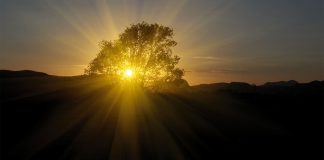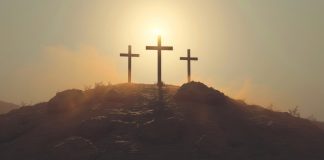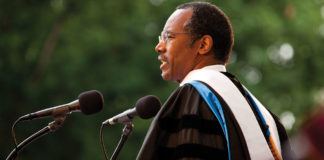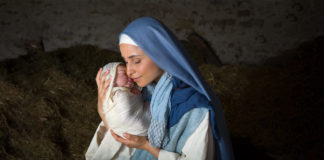I will say it again: Rejoice!
Although we experience more positive than negative elements in life, we are still more intensely and more quickly affected by the unpleasant ones. How can we protect our joy of living despite the problems that beset us?
The Bible as a sign of offence
“‘The days are coming,’ declares the Sovereign Lord, ‘when I will send a famine through the land—not a famine of food or a thirst for water, but a famine of hearing the words of the Lord. People will stagger from sea to sea and wander from north to east, searching for the word of the Lord, but they will not find it’” (Amos...
Case study in a medical journal: gastroparesis healed through prayer
The relationship between religion and science is complicated, and occasional controversies over healing through prayer have not helped. The tragedy of stories in which refusing medical treatment in favour of prayer ends in death is often exploited in the press to portray religion as rudimentary and backward. That is why it is all the more interesting that a case study attesting to the...
The tree that overshadowed the earth
"[Jesus] told them another parable: 'The kingdom of heaven is like a mustard seed, which a man took and planted in his field. Though it is the smallest of all seeds, yet when it grows, it is the largest of garden plants and becomes a tree, so that the birds come and perch in its branches.' He told them still another parable: 'The...
How should I apologise?
Asking for forgiveness is one of the most dignified things a person can do when they have done something wrong. But asking God for forgiveness is more than that: it's bowing down to the highest authority, and it's also appeasing the Infinite. What do we need to know when we ask God for forgiveness?
Confronting deception: from Jesus to the Internet
Let's go back in time to the day when Jesus spoke His apocalyptic words. At that time, rather than giving a revelation about the future, He was more concerned with warning about the dangers of deception.
Suicide: What does the Bible have to say about it?
Every human being, without exception, is a potential suicide. If we look at suicide as a process of self-judgment, condemnation, and execution, every human being walks down this path, at least some of the way.
The rabbi (who never was a rabbi) who will never be forgotten
Given that no one could become a scholar without formal training, it is truly remarkable that Jesus, who was not formally educated, was nevertheless recognized as a “Rabbi” (Mark 12:14 cf. John 3:2).[1]
Injustice and God: Is He the wrongdoer or the one wronged?
The concept of reward is one that encapsulates a world of joys, satisfactions, pleasant emotions, and accomplishments. It is usually correlated with what we do, what we say, who we are, and so on. We could say that it is an expression of our value in relation to the world. But any reward can be overshadowed by painful feelings when there is a...
The world seen from the cross
For some of the witnesses to the crucifixion, the seven sayings of Jesus, spoken while He was nailed to the cross, were filled with meaning. Others downplayed or denied their significance. His words still divide people today. But the statements made by Jesus in those few hours are an important key to understanding His message.
On the side of God and logic: An interview with Dr Ben Carson
Benjamin Solomon Carson is the famous American neurosurgeon who, in 1987, became the first to successfully separate twins conjoined at the head.
Born of a virgin
When Larry King was asked who he would most like to interview among all the famous characters of history, his answer was clear: "Jesus Christ". The talk show host wanted to know if Christ had indeed been born of a virgin. "The answer to that question would define history for me,"[1] King said.
Hope from the pit
Fire falling from the sky. A massive tsunami. An abandoned city. Let’s be real—it’s probably Los Angeles or New York (although sometimes Sydney or Hong Kong makes a cameo). These are the images we most often associate with the end of the world. Whatever comes to mind for you, no doubt it has been shaped in large part by literature, art and, of...
Humble faith
The Church of the Nativity in Bethlehem is the oldest continuously-used church building in the world. It dates from the fourth century, when Roman Emperor Constantine’s mother visited the Holy Lands to identify locations from the life of Jesus for pilgrimage destinations and church sites. From a distance, the point of entry to the church is not obvious, particularly when the area is...
The break between the Old and New Testament and the dilemma of the unchanging God
My first Bible was given to me by Pastor Damian Zamfir in the winter of 1972. Pastor Zamfir, the man who led my first steps on the path to Christ, invited me to visit him in the parish house of the Adventist church on Rodnei Street in Targoviste.


























